What are bad money habits that are destroying your financial future and how can you stop them? A habit is any behavior that if it’s continuously repeated becomes a normal way of doing things. You’re either successful or unsuccessful, poor or rich due to your existing habits. Bad money habits take time to break and are costly in the long run. In addition, they’re inherited from parents, friends, the environment we’ve been raised in as well as the education system.
Through the passage of time habits mold us into who we are. For example, lack of budgeting, impulsive purchasing, excessive use of credits, lack of automatic savings plan, excessive brand loyalty, and highly dependent on payday loans, amongst many.
Bad money habits are destructive in nature, therefore, lead to financial disasters. It’s unfortunate many of us didn’t grow up with financially savvy parents. That has led us to copy bad money habits, as a result, brings about awful financial decisions.

Good money habits lead to the following positive results:
- Financial freedom
- Achieving financial goals like financial discipline, hard work, consistent saving, spending within a budget, commitment to your goals and focus.
Growing up with financially savvy parents helps because you learn from their experience and they also guide you in making clever financial decisions.
Here is first 5 bad money habits with practical tips on how to stop them:
Bad Money Habits #1-Not having a budget
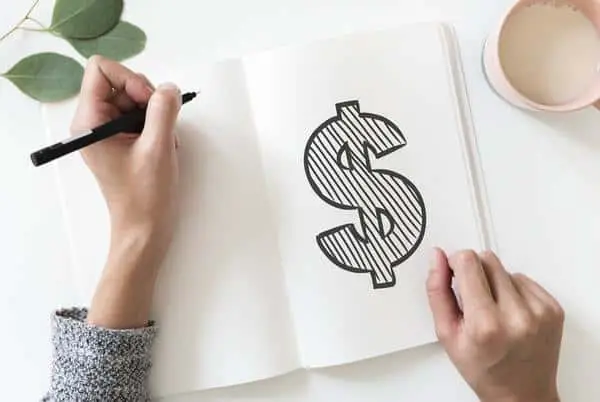
A budget allows you to create a spending plan for your hard-earned cash. It helps you to see how much is earned and where it’s going. Admittedly, without a budget, it’s difficult to accomplish financial success let alone get ahead financially. For the most part, if you are operating without a budget your expenditures are based on emotions or feelings. If you feel like shoe shopping therapy on a particular day you just head out to the mall and splurge. This happens without proper consideration if the item you’ve bought is either a need vs want. Most of the time its a want, however, it is established after the purchased has already been done.
Without a budget it’s extremely difficult to do the following:
- Track expenses
- Difficult to control your desire to spend so you spend frivolously
- Hard to reach saving and investing goals
- Difficult to set spending goals
A budget is a great tracking tool that helps you determine where cuts need to be made to avoid going in the red.
Helpful Tip:
Here are the reasons why budgeting is important:
- Ensures you have money for the things you need
- Keeps you out of debt so you spend within limits
- Committed to your spending plan
- Track expenses
- Spend within your means
When you have a budget, you can easily determine how much money is available to meet your financial goals for each pay period. Since we live in a world of unlimited needs but a limited income. A budget acts as a guide and regulates your expenditures.
Bad Money Habits #2-Not establishing automatic savings plans
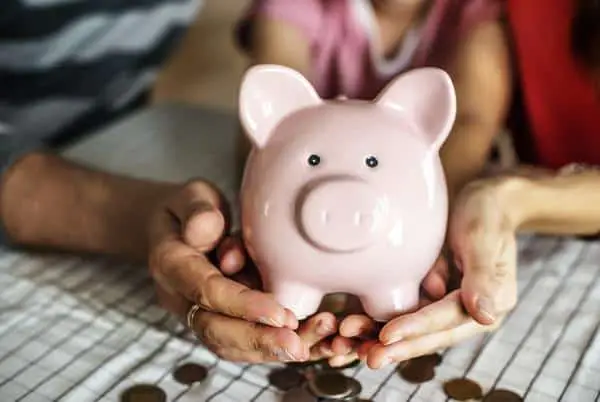
Some people are very disciplined and diligent about putting money away consistently every month or so. However, most of us are not.
We operate as cash conduits where we get paid then we quickly release funds to pay for:
- Rent
- Groceries
- Utility bills
- Credit card bills
- Car loans
- Shopping
For the most part, after paying for all the bills, usually there’s nothing left over to save, therefore the vicious circle continues.
Bad Money Habits #3-Not Prioritising Saving
Of course, if you don’t treat savings as a priority before paying for all monthly obligations then you’re setting yourself up for a financial disaster. In life, stuff happens without warning. Suppose you have a toothache that requires emergency surgery. We are aware that dental bills for a root canal are not cheap and can set you back by $1000-$2000 for a single dental appointment.
All things considered, it’s very difficult to bounce back and get caught up from such an unplanned expense, especially if you’re experiencing cash flow issues. Not having an emergency fund in place can result in the following when life happens:
- Having to borrow from somewhere, which is another source of stress. If you’re lucky to have borrowed the cash then stress will still follow because you have to pay back the loan. The importance of having an emergency fund cannot be emphasized enough.
Helpful Tip:
- Start by establishing an amount that you can afford to save without significantly affecting your lifestyle. Then set up a pre-authorized contribution for the amount to be periodically transferred from your bank account into an investment or savings account. Certainly, it will give you peace of mind and you can sleep well at night because you’re aware there are funds already set aside to fall back on when something happens.
- Review it annually and if you get a pay raise, for instance, 2% then hike it by the same amount.
Bad Money Habits #4-Impulsive purchases

This is higher up the level of bad money habits, normally it starts because of peer pressure or a reference group pressure. Just because your friend bought a Gucci belt it doesn’t mean you should too. Its time to organize a garage sale and make some money as one persons junk is another’s gold.
Check your:
- Basement
- Bedroom Closet
- Garage
- Shed
- Storage room
Certainly, you will notice that you have stuff that was purchased on impulse. Some things might even be in their original wrappers with a price tag still attached. Just because the cute jacket, fancy top or pair of anaconda leather shoes are on sale it doesn’t mean you should buy them. Establish a rule to keep you from making impulse purchases. Delay making a purchase by a day or two. This will give you time to think and determine if it’s a need versus a want. Most of the time it’s a want and you decide not to buy it.
Impulsive purchases are mostly done on a whim and also involve:
- Unplanned and unnecessary purchases of stuff not in the budget
- Leads to overspending and the abuse of credit cards
- Takes money away from other important uses like paying down debts
- Affects how much is saved for your nest egg
The most frightening finding is that impulsive buying has extended to big-ticket items such as:
- Vehicles
- Homes
- Expensive vacations
The financial headaches are painfully felt right when the monthly payments are due. In most cases, the high monthly payments of unplanned purchases affect your cash flow as well as future financial wellbeing.
Helpful Tip:
When you have decided to buy a big-ticket item or take a fancy vacation.
Start by planning ahead:
- A year or more in advance
- Research how much it will cost
Suppose you want to go for a summer vacation in 2019. In this situation, draw up a savings plan that will enable you to save up enough cash to purchase the trip into consideration a year from now. Trust me, you will enjoy it more with just the fact that you don’t have to start paying it back when you arrive home.
- Suppose the three-week trip to Europe will cost $3500. You will need to save $208.33 every month for twelve months or $104.17 biweekly.
- A year from today you will have $3500 saved up and sitting pretty in the bank account.
- This will be a superfun, guilt-free trip since it’s all paid for in advance
Bad Money Habits #5-Brand Royalty Junkie

Are you a brand royalty junkie where you don’t settle for a competing brand even if the product quality is at par? Bear in mind that marketers are very crafty at creating an image that’s associated with owning their brands. They encourage you to develop an emotional attachment to their products.
Most of us, including me, buy products that portray a distinct image from brands like:
- Louis Vuitton
- Gucci
- Prada
- Dolce & Gabbana
- Rolex
Because of aggressive marketing, you’re drawn to brands that are related to the image or your lifestyle associated with the brand.
Helpful Tip:
If you’re loyal to expensive brands make sure you do your shopping at outlet malls for your favorite shops. Popular brands are sold at deep discounts which will save you tons of cash. Also, time your purchases either at the beginning or end of the season. As usual, stores like to clear out stuff or promote a product for the new season.
Bad Money Habits #5-Payday loans dependent
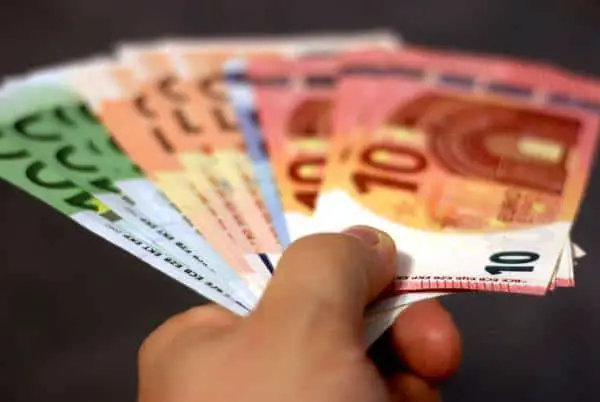
Payday loans are short-term cash loans that come due on payday, usually at the end of the month.
They are very attractive if you experience a short-term cash flow problem. Ordinarily, to qualify you only need a bank account, be of the age of majority (18 years old) and a credit check isn’t required.
All you do is walk-in and will walk-out with cash in hand of $100-$1000. Most people who seek a payday loan are aware that their credit is messed up and stand little to no chance of getting a loan from the traditional banks. Adopting better money habits earlier in life such as saving, budgeting, tracking expenses certainly can drastically reduce the chances of getting into this bad habit.
Major drawbacks of payday loans are:
- Interest is very high. For instance, for a $100 loan amount borrowed the interest cost could be $18
biweekly. - The loan has a short negotiable period. Both principal and interest are due by the next pay-checque.
- There’s no option to repay it in installments.
- High risk of ending up in a payday loan vicious cycle. This is a scenario where you take one payday loan after another. Given the high-interest nature of the loans coupled with your limited income, it becomes a never-ending cycle.
The best alternative for payday loans are:
- Talk to family and friends first to see if they can lend you cash interest-free and payable within a reasonable time. Make sure you keep your promise and pay it back as agreed because this can potentially affect your relationship if you don’t.
- Call your creditors directly and offer to settle if you’ve already maxed out your credit cards. Negotiate a feasible monthly payment plan that would work best for you and likely free you from payday loan dependency.
- Go to a nonprofit credit counselor who can offer advice at no cost on how you can tackle the debt. In addition, a counselor can negotiate with the creditors for you and settle for a better repayment plan.
- Depending on your credit health you can get a consolidation loan or line of credit to pay off and close all existing payday loans. This will reduce your monthly interest costs and focus your repayments to one creditor.
To help improve your personal finance knowledge take free money management seminars from the following online resources:
- CNN: Money essentials 101.The course focus on saving for college and controlling debt, estate planning and insurance issues
- Personal Finance From Missouri State University (iTunes U).You will learn about frugal living and budgeting
- Money Management International. Offers resources for personal finance, frugal living, holiday spending, bankruptcy, debt, and budgeting
- EDX has lots of free courses in personal finance
Certainly, these seminars will teach you how to manage your finances better, as a result, make informed decisions in regards to credit, loans, retirement, and insurance. It can open your eyes and motivate you to value saving and investing. Furthermore, information learned in a money management course arms you with the proper knowledge and understanding of the consequences of your decisions.
It can also motivate you to find a part-time job on weekends in order to increase cash flow. This will increase your income, therefore, pay off debts faster or build up a cash reserve in no time.
Click here to read:5 more Bad Money Habits and How to Stop Them-Part 2
What are your thoughts about the post? I would love to hear them in the comments!
You may also like the following posts:
- Does Paying Yourself First Lead to Positive Net Wealth?
- How To make Money As a Social Media Manager
- Mompreneur Lifestyle: 12 Best Business Ideas to Start Today
- A Step By Step Guide: How to Get a Mortgage Pre-approval Before You Start Looking For a Home
- How to budget with the 50/30/20 method
- How to Buy a Foreclosed Home: A Beginners Guide
- 10 Awesome Side Gigs While Holding a Full Time Job
PIN ME




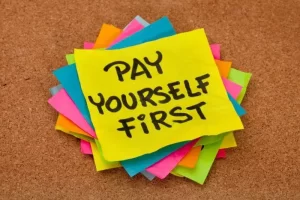





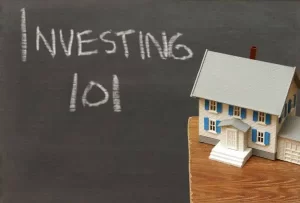






















3 thoughts on “5 Bad Money Habits That Are Destroying Your Financial Future -Part 1”
100% accurate. It’s amazing how easy it is to fall into bad money habits. Honestly, sometimes it’s inherited since we follow some of the same patterns as our parents. Budgeting and Planning is extremely essential to breaking bad spending habits.
I do most of these and have horrible outcomes. I will have to sit down at some point and create a budget. I’m excited to look at budget advice, but I always fail from not sticking to the plan. Thank you!
Its hard to start but once you do, you will not look back. Pick one item on the budget to work on for instance saving $50 from every paycheck. In no time you will get used to it then progress from there. Good luck